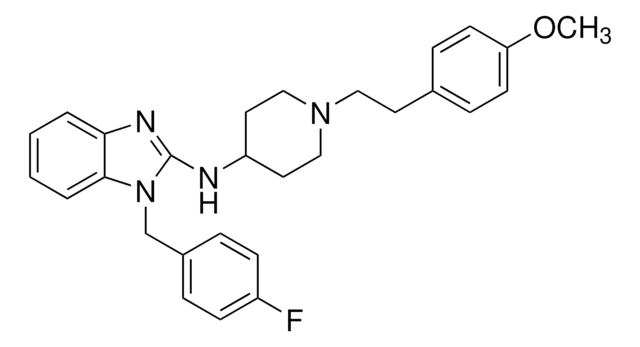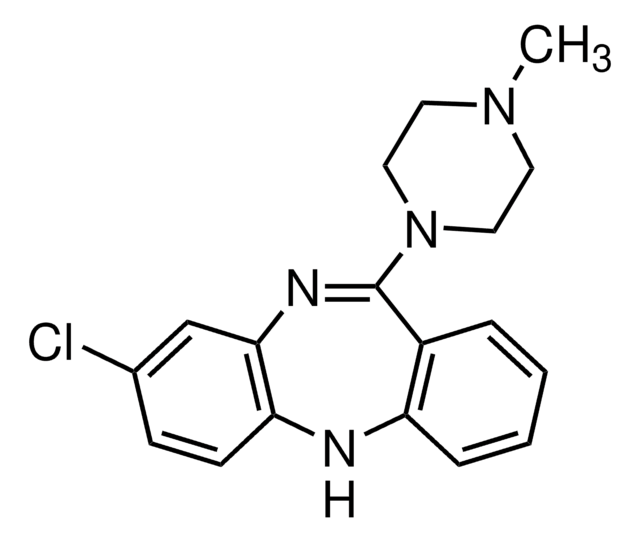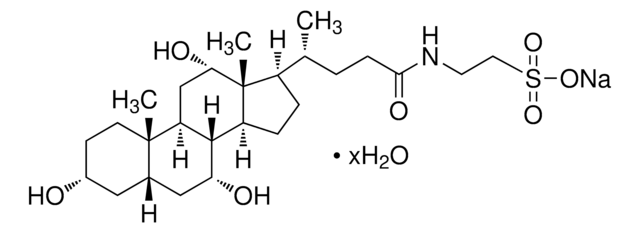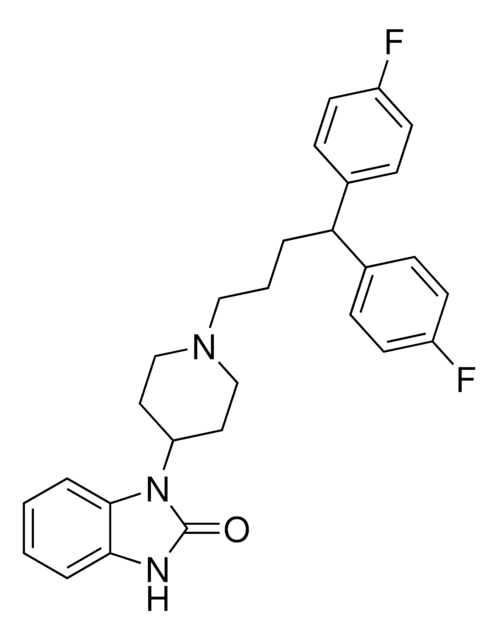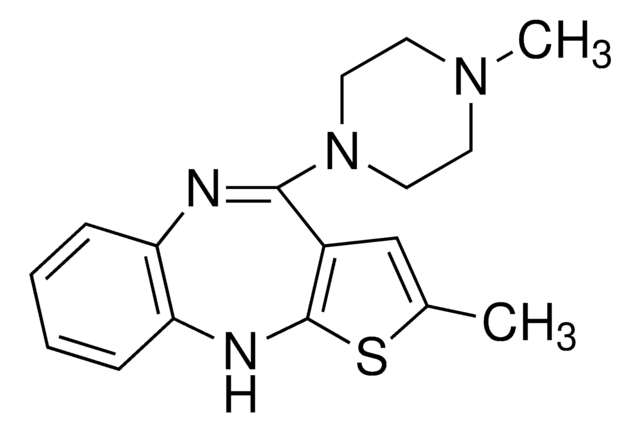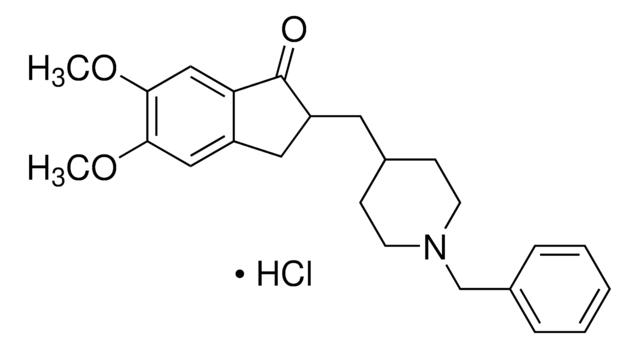D1414
Droperidol
Synonym(s):
1-[1-[3-(p-Fluorobenzoyl)propyl]-1,2,3,6-tetrahydro-4-pyridyl]-2-benzimidazolinone
About This Item
Recommended Products
form
powder
originator
Johnson & Johnson
storage temp.
2-8°C
SMILES string
Fc1ccc(cc1)C(=O)CCCN2CCC(=CC2)N3C(=O)Nc4ccccc34
InChI
1S/C22H22FN3O2/c23-17-9-7-16(8-10-17)21(27)6-3-13-25-14-11-18(12-15-25)26-20-5-2-1-4-19(20)24-22(26)28/h1-2,4-5,7-11H,3,6,12-15H2,(H,24,28)
InChI key
RMEDXOLNCUSCGS-UHFFFAOYSA-N
Gene Information
human ... DRD1(1812) , DRD2(1813) , DRD3(1814) , DRD4(1815) , HTR2A(3356) , KCNH1(3756) , KCNH2(3757)
Looking for similar products? Visit Product Comparison Guide
Biochem/physiol Actions
Features and Benefits
Signal Word
Warning
Hazard Statements
Precautionary Statements
Hazard Classifications
Acute Tox. 4 Oral
Storage Class Code
11 - Combustible Solids
WGK
WGK 3
Flash Point(F)
Not applicable
Flash Point(C)
Not applicable
Personal Protective Equipment
Certificates of Analysis (COA)
Search for Certificates of Analysis (COA) by entering the products Lot/Batch Number. Lot and Batch Numbers can be found on a product’s label following the words ‘Lot’ or ‘Batch’.
Already Own This Product?
Find documentation for the products that you have recently purchased in the Document Library.
Customers Also Viewed
Our team of scientists has experience in all areas of research including Life Science, Material Science, Chemical Synthesis, Chromatography, Analytical and many others.
Contact Technical Service